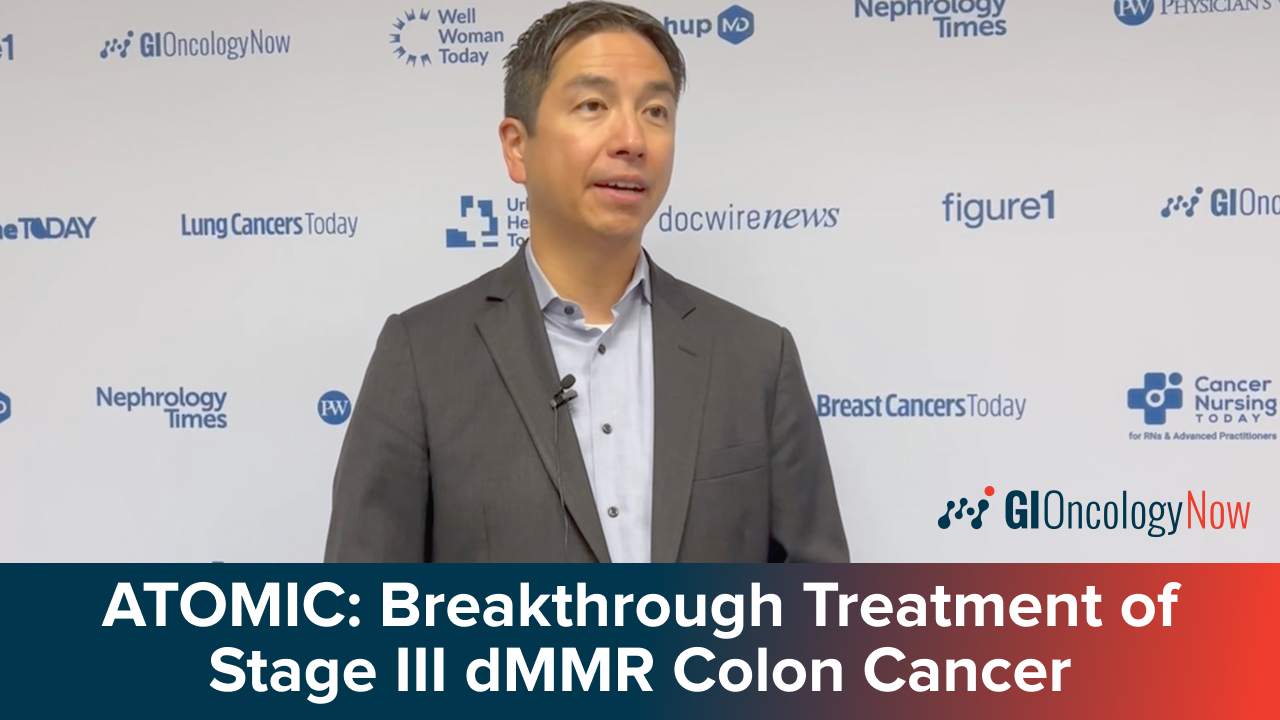
A new study from David N. Church, PhD, and colleagues sought to determine the prognostic value of Immunoscore (IS) in patients with stage III colorectal cancer (CRC) who received adjuvant fluorouracil, leucovorin, and oxaliplatin (FOLFOX) chemotherapy or oral capecitabine and infusional oxaliplatin (CAPOX) in the SCOT and IDEA-HORG trials.
The study was published in the Journal of Clinical Oncology.
Of the 3061 patients who provided tumor samples, 2643 were eligible for IS. Researchers categorized patients into 2 cohorts (IS-Low and IS-High) to analyze disease-free survival (DFS) and multivariable-adjusted hazard ratios (mvHRs) using Cox regression.
Researchers found that patients with IS-Low tumors were more likely to be high risk (52.9% IS-Low vs 42.2% IS-High; P<.01) and younger than those with IS-High tumors (P=.024). Regardless of sex, body mass index, tumor location, or treatment duration, those with IS-Low tumors also exhibited decreased DFS in the FLOFOX, CAPOX, and combined groups (mvHR, 1.52; 95% CI, 1.28-1.82; mvHR, 1.58; 95% CI, 1.22-2.04; mvHR, 1.55; 95% CI, 1.34-1.79, respectively; P<.001).
In patients younger than 65 years of age (mvHR, 1.92; 95% CI, 1.50-2.46), IS was found to have a greater prognostic value than in patients older than 65 years (mvHR, 1.28; 95% CI, 1.01-1.63; P=.026) in the CAPOX cohort. IS also showed prognostic benefit in DNA mismatch repair (MMR) proficient disease (mvHR, 1.68; 95% CI, 1.41-2.00).
The exploratory analyses were not corrected for multiple testing.
Investigators noted that including IS in a model with all clinical variables led to a significant improvement in the prediction of DFS (P<.001), regardless of MMR status.
Dr. Church and colleagues concluded that IS had prognostic value for patients with stage III CRC who underwent treatment with FLOFOX or CAPOX, including those in relevant tumor subgroups.
“Possible variation in IS prognostic value by age and MMR status, and prediction of benefit from extended adjuvant therapy merit validation,” the researchers wrote.







 © 2025 Mashup Media, LLC, a Formedics Property. All Rights Reserved.
© 2025 Mashup Media, LLC, a Formedics Property. All Rights Reserved.